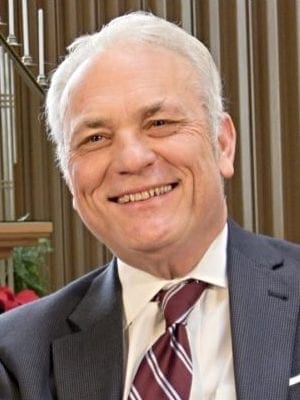One of the oddest ironies of contemporary Christianity in America is the inability ”or unwillingness ”of progressive churches to evangelize.
These are the churches with the most excellent values of inclusiveness and empowerment. It is axiomatic that openness of heart and mind to all people is a principal ingredient for congregational growth.
But, it is precisely these churches that are not only not increasing in membership but are actually in clear decline.
This is puzzling.
The core enterprise of original Christianity was to extend to the world an invitation to gather together in a New Community of Love.
It was the kerygma of that euanggelion around which the first disciples came together: the life, ministry, death, resurrection and return of Christ. The very nature of news calls for it to be disseminated and announced. The very purpose of this news is to create something new, that is, the community of crucified and resurrected people called the Church of Jesus.
The word we translate evangelism was initially used to herald the coming visit of a Roman ruler to a far-flung province. The church, subversive movement that it was, co-opted that secular term to convey the arrival of the only true King, and the establishment of the only exhaustive and eternal kingdom. The concept at the point of its inception connoted a town crier, a communal notice, an open announcement, a public address.
There are old arguments for why progressive churches aren’t evangelistic:
1. Evangelism has been done so coercively and inauthentically by fundamentalists that progressives want little to do with it.
2. Progressive churches have a style and methodology ”liturgical worship, scholarly Scripture study, etc. ”that do not appeal to the zeitgeist of our day.
3. Faith is an intensely private matter that is not properly addressed in public ways. Evangelism requires a necessary intrusion into this privacy.
4. Demographic forces have adversely affected the progressive churches of our cities more than the conservative churches of our suburbs. “Red state/blue state” now means “red church/blue church.”
These strike me as tired dichotomies that are increasingly irrelevant. First, we no longer have a “Christ-haunted” culture, as Flannery O’Conner described the South of her day with its slam-bang, hard-boiled religious fervor.
Second, it is precisely the historic, rich tradition and symbolism that is increasingly attractive to emerging generations.
Third, the old public/private divide is all but erased in our day of Oprah and reality TV.
Fourth, it seems the election of President Obama reflects a growing dissatisfaction with the polarization of our hyper-sorted national community.
Furthermore, economic dynamics are bringing families back into the centers of our cities and away from the sprawling suburbs.
So, why can’t churches like ours be evangelistic? Is there some other reason?
Charles Foster Johnson is interim pastor at Broadway Baptist Church in Ft. Worth, Texas. A version of this column appeared first on his blog.
Charles Foster Johnson is pastor of Bread in Fort Worth, Texas, and founder and executive director of Pastors for Children, a nationwide network of faith leaders mobilized for public education ministry and advocacy.

